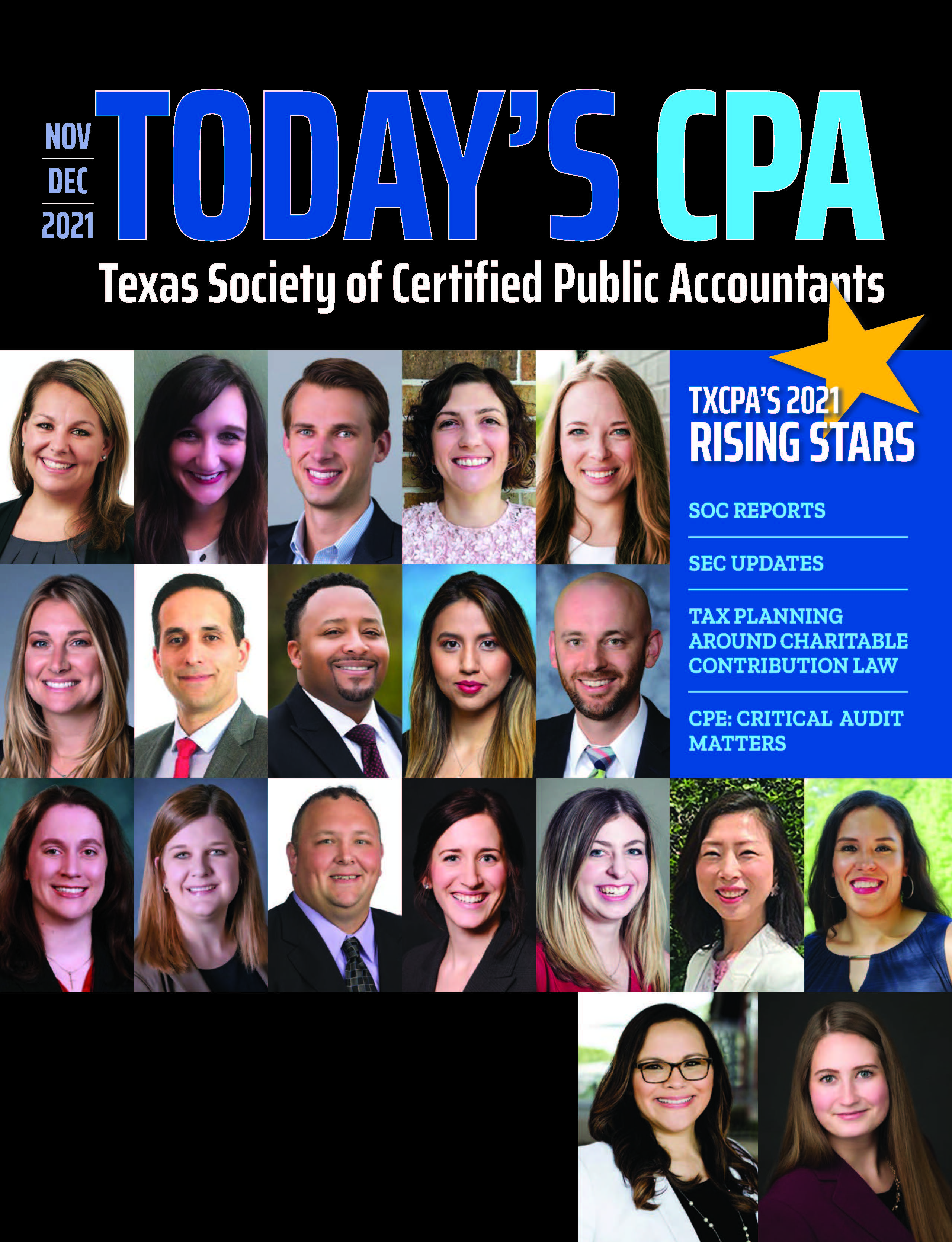The SEC Updates Regulations to Streamline and Enhance Management Discussion & Analysis
ACCOUNTING & AUDITING COLUMN
By Don Carpenter, MSAcc/CPA
The Securities and Exchange Commission (SEC) has issued amendments to Regulation S-K to update information that is required to accompany the financial statements and supplemental disclosures in the quarterly 10-Q and annual 10-K. These revisions are intended to eliminate duplicative reporting and reflect the increased accessibility to financial filings available electronically.
Management Discussion & Analysis (MD&A) is the primary focus of the amendments, but other disclosures are affected as well. The requirement to include selected financial information for the preceding five fiscal years in tabular format under Item 301 has now been eliminated.
Likewise, Item 302 previously required that certain financial information be reported by quarter for the current and prior fiscal period. This requirement has also been eliminated unless a material retrospective change has been made that amends an included quarter, in which case the affected quarter must be included, as well as an explanation of the change. Both of these revisions reflect the SEC’s view that prior period information is readily accessible electronically and duplicating that information is not beneficial.
Most of the amendments focus on MD&A. These changes may most effectively be described in list format:
1. Prospectively, MD&A will begin with a statement of the section’s objective. The statement should make clear to the reader that the purpose of MD&A is to explain the financial results from the “perspective of management.” This includes management’s assessment of financial condition, results of operations and cash flows, as well as any material conditions or uncertainties that they consider might indicate these results are not indicative of future results.
2. Prior to amendment, registrants were required to disclose material capital expenditure commitments, as well as capital resources and liquidity. In addition, a tabular disclosure of contractual obligations was required as a separate disclosure later in MD&A. These requirements are now combined. Prospectively, the disclosure will address “material cash requirements” and the capital resources that will be relied upon to meet these requirements.
3. In the discussion of the results of operations, there is no longer a specific requirement that registrants discuss the impact of inflation or price changes on results. These items need only be discussed if they are material to period comparisons or management believes they may become material.
4. A separate section discussing off balance sheet arrangements is no longer required. This requirement is being replaced with a requirement that off balance sheet items will be integrated into the overall MD&A discussion and analysis on a principles-based approach
The amendment stated that this approach should allow registrants to tailor the discussion to their specific circumstances. At a minimum, material commitments should be captured in the disclosure of cash requirements mentioned above.
5. A new section has been added to the regulation that requires discussion of material accounting assumptions, estimates or judgments. This is consistent with earlier SEC requirements regarding critical accounting estimates. Specifically, the new section requires that management disclose the degree to which these estimates or assumptions have changed in the reporting period and the sensitivity of reported amounts to underlying assumptions.
6. Previously, management was required to discuss changes in financial position from the prior fiscal year-end balance sheet to the most recently reported balance sheet and results of operations from the current year-to-date period with the same prior year period. If a quarterly income statement was also presented, it should be discussed in relation to the same prior year’s quarter. The amendment will now allow for the quarterly comparison to be made using either the same quarter in the prior year or the immediately preceding quarter of the current fiscal year. If the preceding quarter is used, relevant financial information for that quarter must be presented or the prior EDGAR filing must be identified.
Application of these amendments is required beginning in the fiscal year ending on or after August 9, 2021 (year ending December 31, 2021, for calendar year-end companies). Early application is permitted if companies comply with the amended, but any company that complies early must comply with all provisions in the amendment.
This update to Regulation S-K follows closely behind an amendment issued in 2019 that updated reporting requirements regarding the registrant’s description of its business, disclosure of material legal proceedings and the format and nature of its risk factors.
These two amendments taken together reflect the SEC’s focus on the evolving environment within which financial disclosures exist. They also offer an opportunity for filers to take a fresh look at their disclosures and update their filings to meet the need of their creditors and investors.
About the Author
Don Carpenter is clinical professor of accounting at Baylor University. Contact him at Don_Carpenter@baylor.edu.























